Notre Dame’s Department of Political Science welcomed four new hires last fall and recognized the accomplishments of a faculty fellow as she entered her second year at the University.
“In hiring Susan Collins, Sarah Daly, Tanisha Fazal, and Matt Hall, and by appointing Deondra Rose as a Moreau post-doctoral fellow, the Department of Political Science continues its tradition of bringing the very best scholar-teachers to Notre Dame’s intellectual community,” says Professor and Department Chair Michael Desch.
“These are individuals who are diverse in approach and focus but united in their commitment to excellence in research and teaching.”
The Ancient View
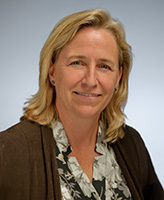 Susan Collins
Susan Collins
Associate Professor Susan Collins says her work tries to shed light on the radical differences between our current view of political association—understood as a contract between free and equal individuals in pursuit of their self-interests—and the ancient view.
“The ancient view brings out more clearly the necessary place of force in political founding, as well as the authoritative character of law and its overarching role in shaping us as citizens and as human beings,” she says.
In the fall, Collins taught Freedom and Empire in Classical Greece, in which the class read Herodotus on the Persian Wars and Thucydides on the Peloponnesian War. This semester, she is working on a book about the ancient view of political order and founding, which in part considers the Spartans.
“The Spartans were the only political order, even in the Ancient world, that undertook a comprehensive education of citizens,” Collins says. “Rousseau says they were the only political community to have produced complete citizens, wholly dedicated to the common good. This is best exemplified by the battle of Thermopylae, in which 300 Spartans died in defense of Greek freedom.
“Ancient thought is so much at home here,” she adds, “partly because of Notre Dame’s Catholic mission and partly because of its related devotion to the liberal arts.”
Before coming to Notre Dame, Collins was the Ross M. Lence Distinguished Teaching Chair at the University of Houston and founding director of Phronesis: A Program in Politics and Ethics.
Her most recent book, a translation of Aristotle’s Nicomachean Ethics, with Robert Bartlett (University of Chicago, 2011), was favorably reviewed in the New York Times Book Review and nominated for the John D. Criticos prize. Collins is also the author of Aristotle and the Rediscovery of Citizenship (Cambridge 2006), co-author and translator of Empire and the Ends of Politics: Plato’s “Menexenus” and Pericles’ Funeral Oration (Focus 1999), and co-editor of Action and Contemplation: Studies in the Moral and Political Thought of Aristotle (SUNY 1999).
A Latin American Focus
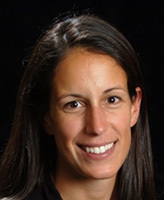 Sarah Daly
Sarah Daly
When Sarah Daly was 18, she taught in Ecuador for eight months.
“I observed the critical intersection of development and security—that localities with violence failed to reach their growth and development potential and that poverty seemed to incite violence,” Daly says.
That experience led her on a career path that brought her to Notre Dame in the fall as an assistant professor of political science.
“I see my research as having a regional focus—Latin America—and also examining security issues often studied in the realm of international relations in the intrastate context of civil wars. I bridge boundaries between comparative politics, international relations, and area studies.”
Last fall, Daly taught an undergraduate course on negotiating and consolidating peace. In the spring, she is teaching a graduate seminar on civil wars and an undergraduate seminar on political violence, insurgency, and terrorism.
Daly is currently working on a book that seeks to explain the recurrence of war or consolidation of peace by examining the post-war trajectories of armed organizations. She is also finishing work on a $360,000 grant from the Swedish Foreign Ministry to study ex-combatant recidivism and a project that explores how and when rebel groups transition into political parties. She is commencing a new research project on state strategies toward fighting organized crime and the implications of these strategies for state-building and governance.
“I am thrilled to be joining a faculty with so many colleagues who share my research interests. Indeed, the world-renowned Kellogg and Kroc Institutes are a testimony to these research focuses at Notre Dame,” Daly says. “I am also looking forward to mentoring graduate and undergraduate students interested in political violence and peace.”
Consequences of Conflict
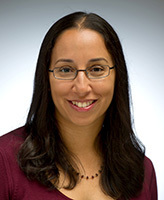 Tanisha Fazal
Tanisha Fazal
Tanisha Fazal, an associate professor of political science and peace studies, came to Notre Dame from Columbia University, where she taught classes on civil war, territorial conflict, research design, and the laws of war.
Her book, State Death: The Politics and Geography of Conquest, Occupation, and Annexation (Princeton University Press, 2007), received the 2008 Best Book Award of the American Political Science Association’s Conflict Processes Section. “State Death,” she says, “asks why some states disappear from the map of the world. What I found is that state death has been much more common than people had previously realized.”
In fall, Fazal was hiring research assistants for a data collection project on civil wars from 1816 to the present. In the spring, she is teaching a senior seminar on the laws of war and an undergraduate lecture class on civil wars, which will follow the conflict in Syria.
Fazal is working on her second book, which argues that states have stopped issuing formal declarations of war and forming formal peace treaties because they want to create legal ambiguity as to whether the laws of war apply to them.
“By contrast,” she says, “secessionist groups fighting civil wars explicitly engage this body of international law as a way of signaling to the international community that they will be good and capable members of that community if they are admitted to the club of states.”
She is also in the midst of a project that responds to scholars who argue war is on the decline, based on a reduction in the number of people killed in war since 1945. “What these authors have missed is that there have been major advancements in medical care in conflict zones,” Fazal says.
The Constitution and the Courts
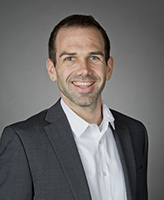 Matthew Hall
Matthew Hall
Assistant Professor Matthew Hall comes to Notre Dame from St. Louis University and specializes in American political institutions, with an emphasis on judicial power and independence.
His book, The Nature of Supreme Court Power (Cambridge University Press, 2011), won the 2012 C. Herman Pritchett Award for Best Book on Law and Courts from the American Political Science Association.
“There is always a tension between longstanding principles and our immediate convenience,” Hall says. What tests those principles, he says, are groups such as the Westboro Baptist Church and its protests at military funerals, which most people find offensive but are protected by the First Amendment.
The primary focus of Hall’s current research is the real-world consequences of Supreme Court decisions. Other projects include examining the impact of external influences on the judicial branch and looking at how lawyers can write briefs that win cases. The latter research, Hall says, involves computer-based text analysis of winning briefs to see what they have in common.
Last fall, Hall taught an undergraduate course on the Constitution and a graduate-level offering on judicial politics. In the spring, he is teaching an undergraduate course on Congress, in which the class will simulate being the Senate, and another, much like one that inspired his academic pursuits, on civil rights and civil liberties.
“I love teaching. What drew me to Notre Dame is that the university seriously values teaching,” Hall says.
Awards for Title IX Dissertation
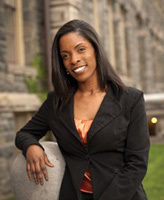 Deondra Rose
Deondra Rose
Deondra Rose, a fellow in the University’s Moreau Academic Diversity Postdoctoral Program, arrived at Notre Dame in 2012 from Cornell. Her dissertation on how federal higher education policies have shaped gender equality in the United States won two awards in 2013—The Leonard D. White Award for Best Dissertation in the Field of Public Administration, American Political Science Association, and the Walter Dean Burnham Award for the Best Dissertation in Politics and History, American Political Science Association, Politics and History Section.
Of her time thus far at Notre Dame, Rose says, “The opportunities that I have had to research and teach in the department have had a particularly strong impact on my development as a scholar and as an instructor.”
Learn More >
- Susan Collins faculty page
- Michael Desch faculty page
- Sarah Daly faculty page
- Tanisha Fazal faculty page
- Matt Hall faculty page
- Kroc Institute for International Peace Studies
- Kellogg Institute for International Studies
- Moreau Academic Diversity Postdoctoral Program
- Related article about Deondra Rose


